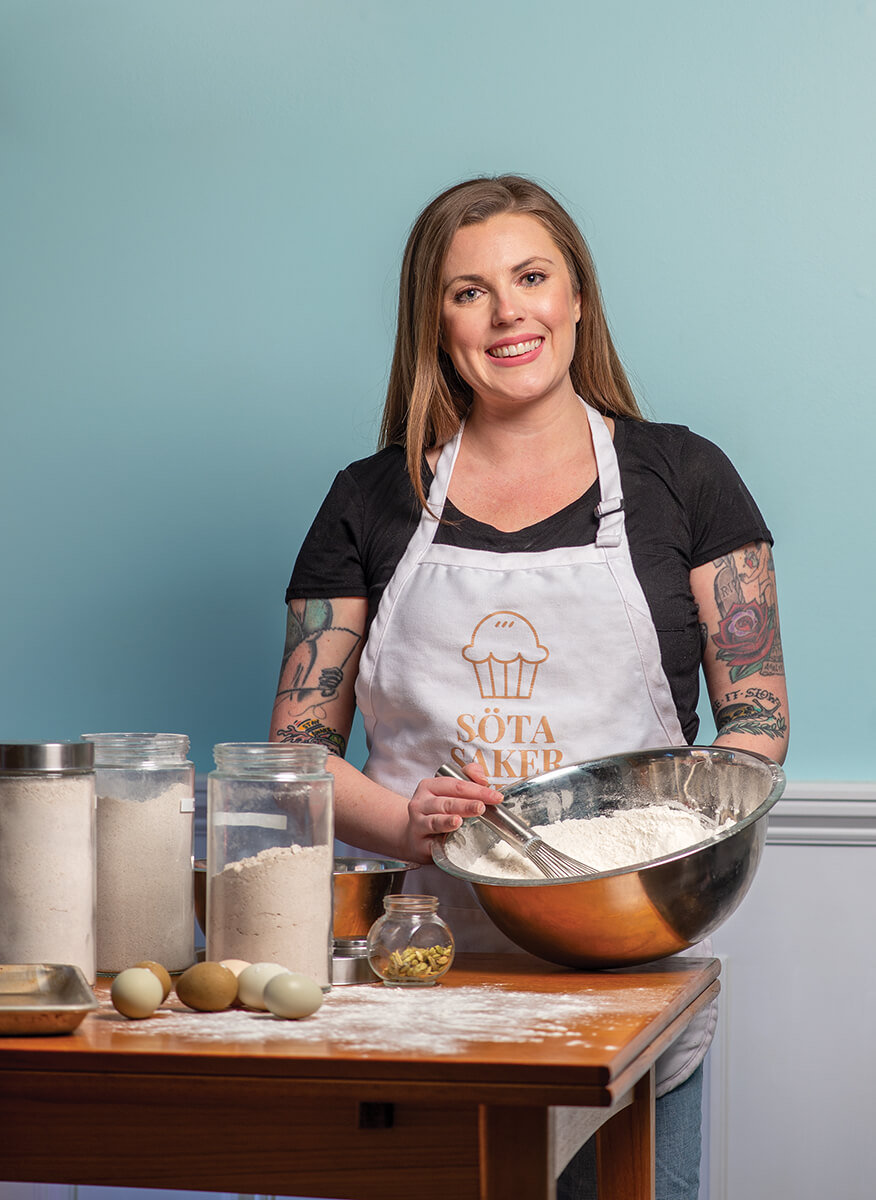In the 18th century, a Swedish king imposed a tax on coffee, afraid that coffee meetups would result in an overthrown monarchy. But tax or no tax, the Swedes took their coffee breaks seriously. So much so that it is now mandatory to have two fika breaks every day, once mid-morning and again mid-afternoon.
The goodies are a staple in Sweden and are eaten on a daily basis, as part of the Swedes’ fika lifestyle. Simply put, fika means having a coffee break with friends or colleagues.
Jenna Marsh rang in the new year by opening a home bakery. In her spare time, she baked for her family, learning and perfecting the recipes she picked up from her Swedish partner, Pontus Ullberg. In June 2020, when the rules for low-risk, home-prepared foods changed, Marsh saw the opportunity to fill a Sweden-sized void in the greater Edmonton area.
“There’s no Scandinavian-style baked goods,” says Marsh, “and with this sort of historical immigration in this area [St. Albert], there is a large population.” Scandinavian settlers began arriving in Alberta in the late 19th century, and played a role in the names that were given to Alberta towns.
The couple’s Swedish bakery, Söta Saker YEG (which means “sweet things”), opened in January 2021 to an impressive response (it had more than 250 orders since January). That surprised them both, and gained them a loyal customer base of Swedish immigrants. “It’s some-thing Edmonton is lacking, so we’re getting a lot of orders,” Marsh says, adding that she’s baking every day now.
She displays the baked goods on a tray in her living room. The aroma wafting from them is more savoury than sweet. Although familiar, the baked goods are slightly different from what we are used to.
“It is baked goods that are meant to be enjoyed all the time, not once a week or once a month,” Marsh says.
The cinnamon buns, also called kanelbullar, have an added flavour of cardamom, giving them a slightly savoury taste. The cardamom, Ullberg explains, came to Sweden in the mid-1800s. At the time, India was part of the British Empire and the trading ships would bring over spices to the North, where it eventually stuck.
